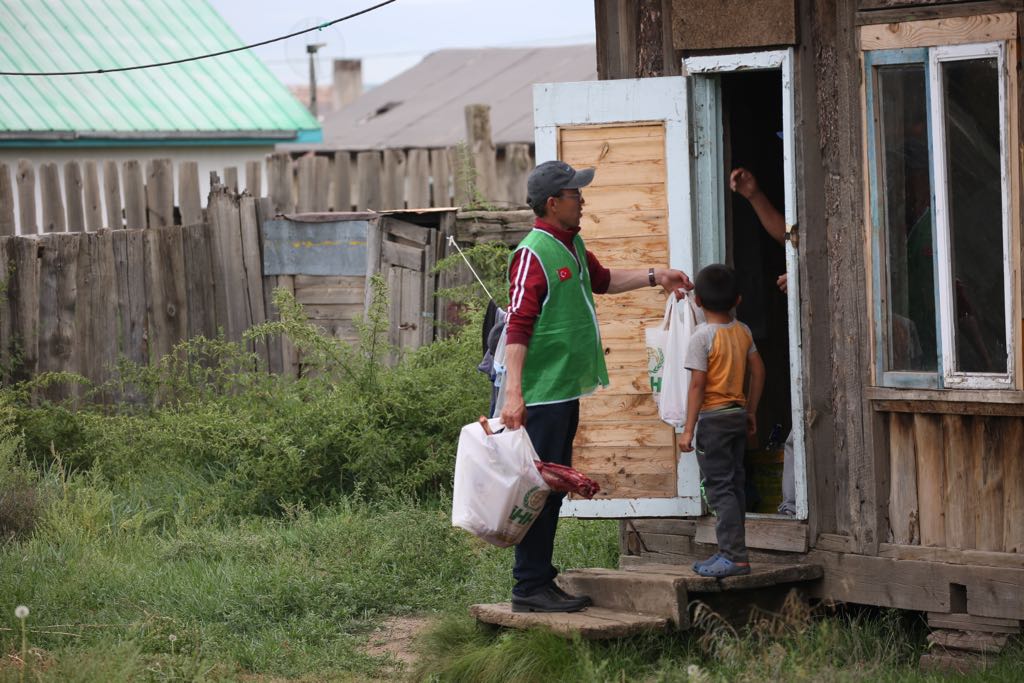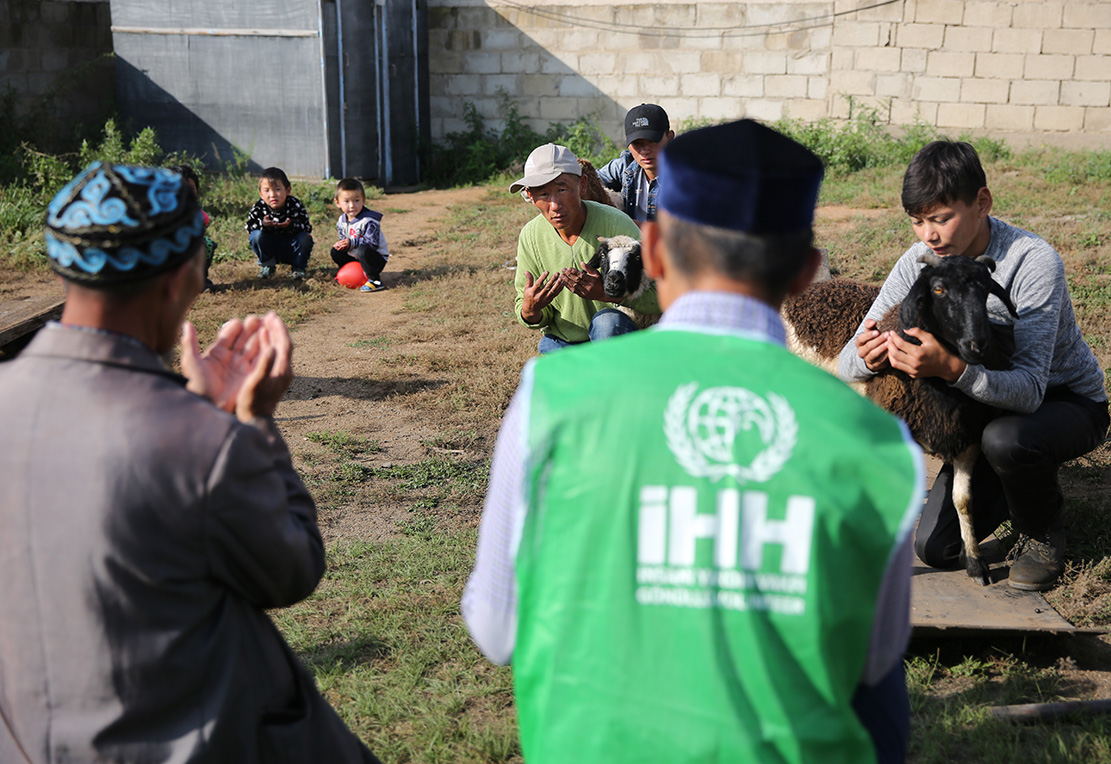
We departed for Mongolia late in the evening. As we left the daytime in Istanbul, we were heading for the land where the sun rises. As ours was a connecting flight, we landed in Bishkek, the capital of Kyrgyzstan four hours later. Here there was a practice I had never witnessed before. The attendants told all the passengers to leave the plane with the luggage they were carrying in the cabin. Those who were continuing to Mongolia had to go through a security check again and were boarded onto the same plane and in the same seats. Although none of us understood the logic in this procedure, we did as they said. Then our plane, full of slanted eye passengers, took off once again for Bishkek.
Five hours later we landed in Ulaanbaatar, the capital of Mongolia. Ruslan meet us at the airport. Ruslan is a Kazakh Turk who studied university in Turkey and returned to Mongolia 11 years ago. Although he said he had forgotten Turkish, we did not have much difficulty in communicating.
When we study the history of Mongolia, we see that the country experienced eras similar to ours. The country that was the land of dispute between China, Japan and Russia for many years, eventually gained independence with the aid of Buddhist priests 1921. In 1926, religious and state affairs were separated, and after the 1930s the priests began to be executed and exiled.
Coldest capital in the world
Although Mongolia is the world’s most sparsely populated country that is twice as large as Turkey with its area of 1.5 million square kilometers, its population totals 4 percent of Turkey’s population. The population density on the land outside the capital is 1.5 persons per square kilometer. Taking into consideration the size of Istanbul, imagine that only five thousand people lived here, then it would be easier to understand what I mean. However, despite this I was confronted with a more developed country than I expected. In particular the capital Ulaanbaatar, it resembles a developed Russian city with its huge buildings and luxury cars. Ulaanbaatar, which means red hero, is the coldest capital in the world with winter weather conditions reaching -50.
The country that was under Russian influence for a long period, inherited the habit of consuming alcohol. Alcohol, which is one of the country’s main problems, is the cause of 80 percent of the accidents. Despite this, there is a serious ban on smoking in the country.
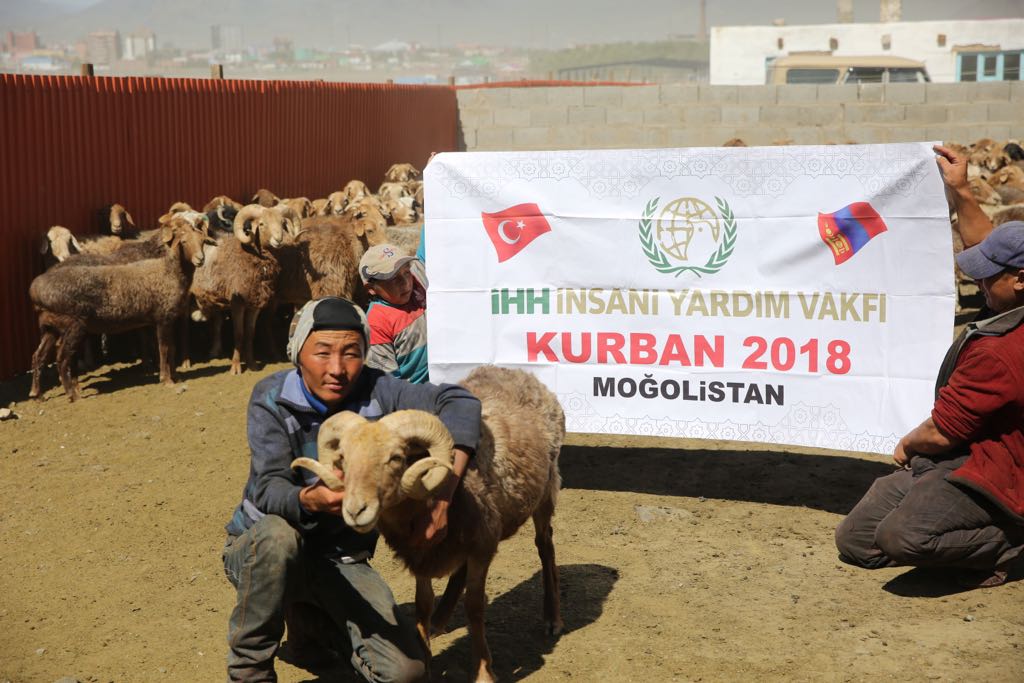
Eid with the Kazakh Turks
On the first day of eid, we travelled to the Sharingol province for IHH’s qurban operation in the region. There are almost 400 Kazakh Turks living in this district which is 200 kilometers from the capital. Although their numbers are few, the Kazakhs that are trying to live as a community have forgotten many aspects of their religion. We performed the eid prayers with another 10 people and then we went to the place where the sacrifices were to be performed. In a short while, the Kazakhs who learned we had come to the area began to gather in front of the mosque. On one hand I was trying to sacrifice the qurbans, while on the other trying to speak to the Muslims there. A few hours later all of the Kazakhs in the region were gathered around the mosque. Everyone joined in with the qurban activities and did whatever they could to help. When the imam turned to us and said “thanks to you this is the first time we are celebrating eid together” we were even happier.
A while later, on hearing about the crowd that had gathered around the mosque the Mongol mayor also came. He joined us saying that he came to celebrate eid with the Muslims. After we ate dinner together, we began to distribute the qurban meat. With the predetermined list, we visited the homes one by one, celebrated eid and delivered meat to the people in need. At every home we visited we were met with the same expression of surprise and gratitude. These were Muslims, and when we found it strange for them to be so surprised, the leader of the Kazakhs in the region felt the need to explain this:
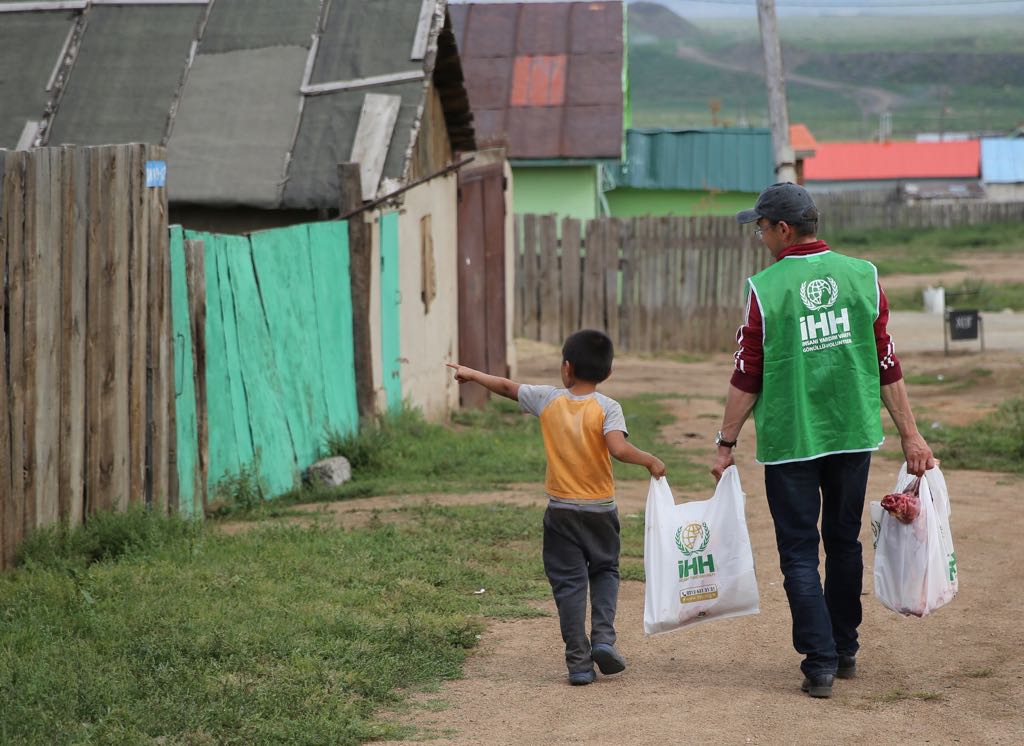
“Because our people were under Chinese, and then the Soviet communist rule for such a long period, they do not know much about their religion. Especially the youth, many of them know nothing about Islam. They were surprised to see you. No Muslim group has ever come here before. Now you are sacrificing qurbans for the people and telling them that you are their brothers. This is why everyone is so surprised and happy. I hope you come here every year so we can celebrate eid in the same way our ancestors did.”
I had reservations before I came to Mongolia. Mongolia is a poor country, but the situation of the people there is not as bad as those in Somalia or Arakan, so why were we sacrificing the qurbans there? When I shared this with the IHH regional representative, he said our duty is not just sacrificing the qurbans. “Our duty is not simply delivering meat and ensuring that the people are full for a few days. Qurban is also an opportunity for us. This is an opportunity to come closer. In view of this, we must take a note of all the Muslim’s problems and learn what we can do for them.”
The regional representative may have explained this, but when we actually came to Mongolia I realized that we had a much greater duty. The people who gathered outside the mosque when they heard we had come and celebrated eid for the first time together were the most excellent example of this.
We spoke to them about their hardships. Our guide told us that they wanted a hostel, as the girls and boys were sharing rooms in the hostels there, and this presented a major threat for these youngsters. Our guide, who explained that the people in the Sharingol province walked miles to access water every day, also asked us to build a water well there.
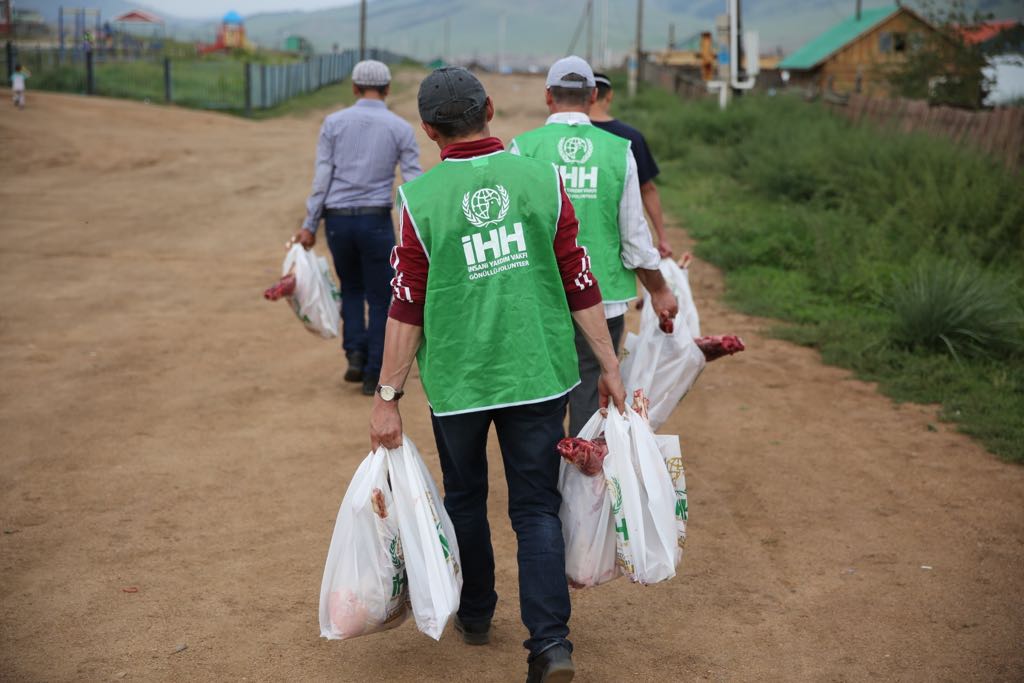
A Kazakh city: Bayan Olgii
We bade our farewells to the Muslims with whom we celebrated eid and listened to their problems throughout the day. The next day we travelled to the Bayan Olgii province which is in the west of the country. Bayan Olgii is a city where a majority of the habitants are Kazakh Turks. In this city almost everyone, including the Mongolians, speaks the Kazakh language and Kazakh education is given in the schools here. We spent the days following eid here. We sacrificed the last of IHH’s qurban shares here and delivered the meat to those in need. It was so amazing to spend eid with Muslims who live thousands of kilometers away, but what I discovered there was quite disturbing. Missionaries who came to the country for aid efforts converted almost 3 thousand homes into small churches.
Our guide who showed us a few of these homes summarized the situation there saying “Today, the lands that were once beside Ahmad Yasawi are entrusted to the missionaries. Through the schools, orphanages and nurseries, Christianity is increasing rapidly. We have no problems with the Buddhists. They are extremely tolerant towards us. We are afraid that if there is an increase of Christianity here it will become like the European countries. The Christians are calling everyone they give aid to a meeting every month and promoting their ideological and religious beliefs. This is what we are afraid of.”
At the end of the seventh day our task in Mongolia ended. We had distributed the qurban meat to those in need and tried to learn about the problems they faced here. On my way home, one thing remained in my mind about Mongolia: The people who celebrated eid for the first time thanks to the qurbans donated from Turkey…
